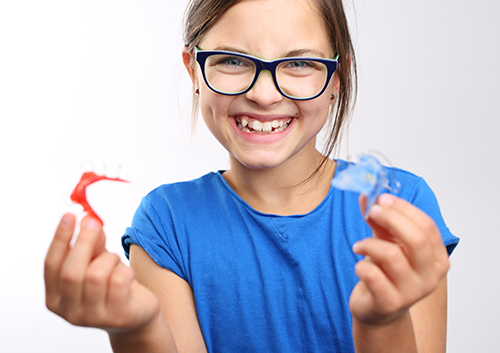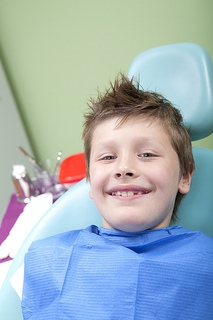Are baby teeth really that important?
February 2nd, 2022

Your infant’s first teeth will begin to appear around six to 12 months of age. You might wonder how important these primary teeth really are. After all, baby teeth are destined to fall out within a few years and be replaced by a full set of permanent teeth. However, baby teeth have important functions, and proper care can set the stage for excellent oral and overall health.
Promote Better Nutrition
The appearance of your baby’s primary teeth around six to 12 months of age coincides with changes in your infant’s nutritional needs. Beginning at six months, exclusive breastfeeding is no longer nutritionally sufficient; this is the age at which you should introduce solid foods.
At six to eight months, when your baby can start to chew, strained or pureed fruits and vegetables are appropriate. As your little one’s teeth grow in and chewing abilities progress through 12 months of age, you can gradually add cereal, bread, cooked meats, and other adult foods to his or her nutritious diet.
Increase the Life Expectancy of Baby Teeth
Although baby teeth are inevitably going to fall out and be replaced by permanent ones, making baby teeth last serves an important role that can have benefits into the future. Baby teeth serve as placeholders for permanent teeth. If they decay and fall out too soon, permanent teeth are more likely to grow in crooked.
How to Take Care of Baby Teeth
Your baby’s primary teeth are already in his or her mouth at birth; they are just invisible because they have not broken through the gums. Since they are already present, your baby can get cavities if you do not practice proper oral hygiene from the beginning.
- Do not let your baby fall asleep with a bottle in his or her mouth.
- Brush your child’s baby teeth twice a day as soon as they come in.
- Floss your child’s teeth as soon as he or she has two teeth that touch.
- Visit Convivial Dental for your baby’s first checkup when the first tooth arrives.










